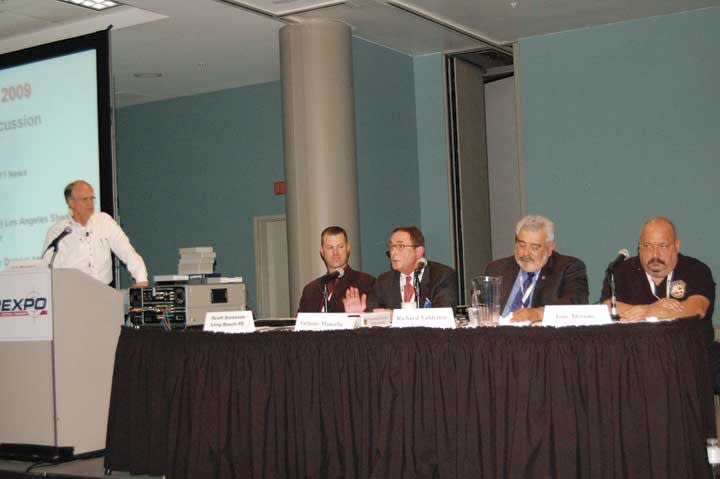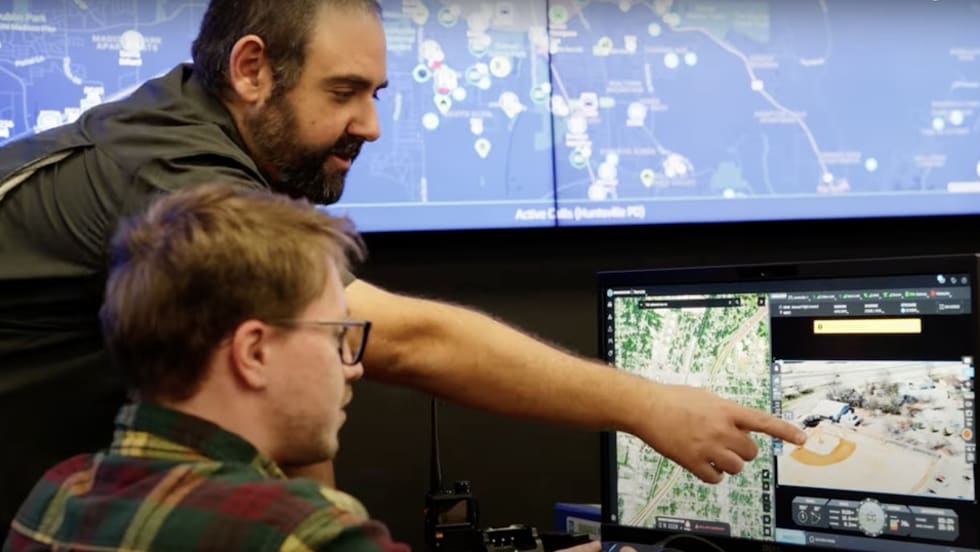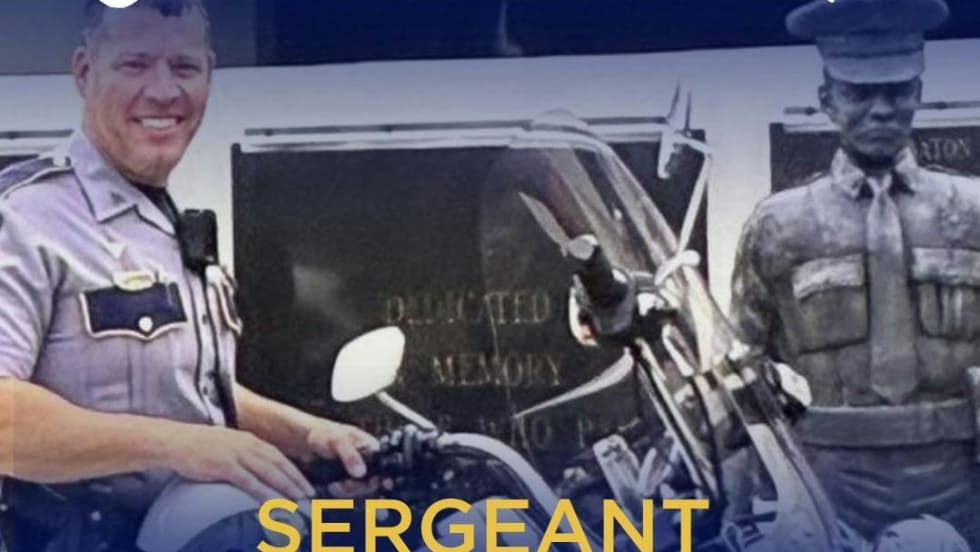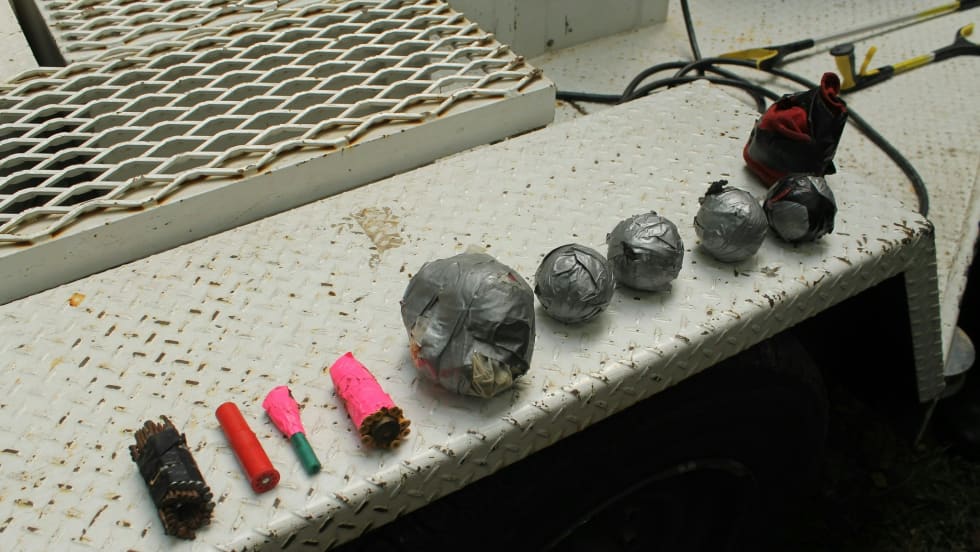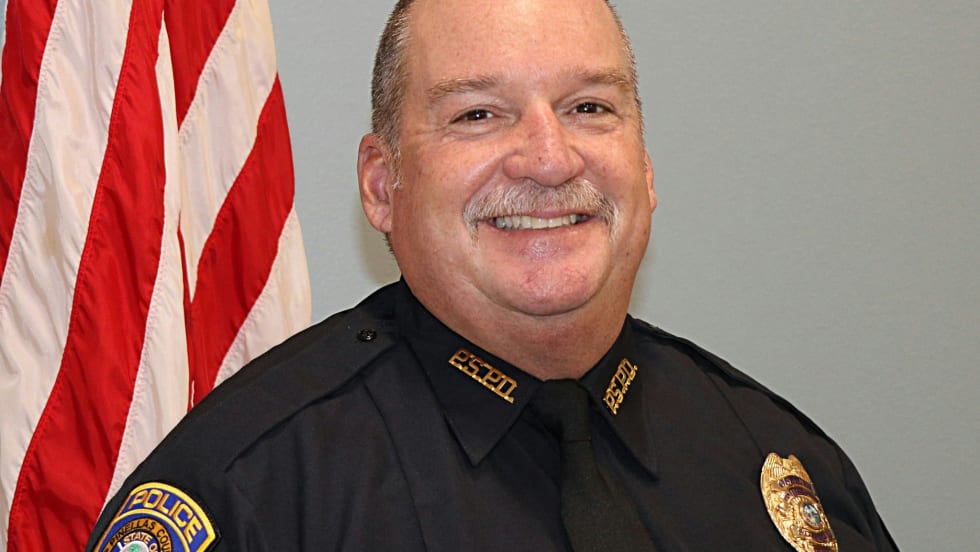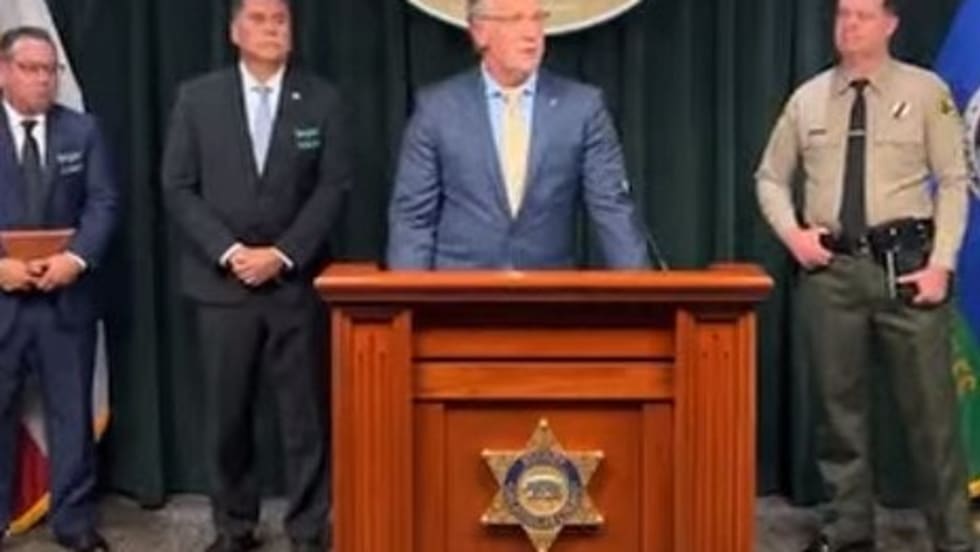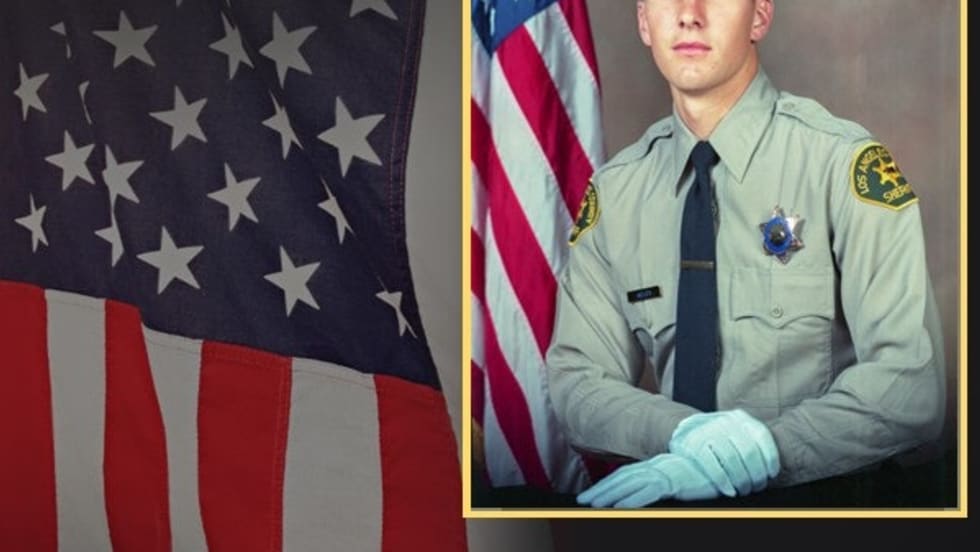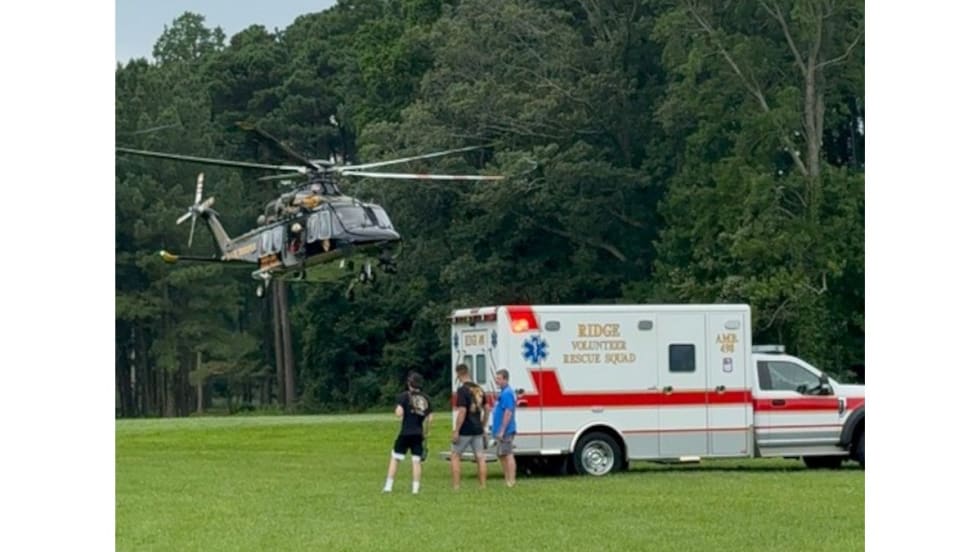On the first night of TREXPO West 2009, four gang experts sat on a panel moderated by FOX 11 Los Angeles investigative reporter Chris Blatchford to discuss the challenges gangs pose for law enforcement.
Gang panelists Tony Moreno and Richard Valdemar, both retired gang investigators; current Long Beach Police Department officer Scott N. Sorenson; and prosecutor Anthony Manzella agree that gangs are a problem. They disagree on the best way to approach the problem…and on how much law enforcement can do.
As a prosecutor, Manzella sees many cases involving gang members, including one in which he successfully lobbied for a 14-year-old to be sentenced as an adult for murder. He's unhappy with the situation, but doesn't see a practical way to break the cycle.
"My personal opinion is by age 8 they're lost," says Manzella. "If you want to save these kids, take them out of the family when they're 5. Give them to the nuns, the Lutherans, some church group. Have them raise them. Otherwise, it's never going to change."
But Moreno and Valdemar disagree. They both grew up in gang-infested areas, yet never became gang members themselves. Instead, both men joined Los Angeles law enforcement agencies and worked as gang detectives. Through experience, they know that many kids join gangs looking for a sense of family, and they say if the kids can find that elsewhere sometimes they can be saved.
"Be honest. Just show them you care," says Moreno, who retired from LAPD. He says even taking a young gang member home to their parents shows them caring in the form of much needed—and wanted—discipline. "You never know how much good you're doing," he says.
Valdemar also worries about what law enforcement isn't doing, and how an outpouring of negative attention on problem children affects their peers.
"The biggest cause of gangs is we do nothing for the 90 percent who aren't gang members," says Valdemar. "If all the attention and respect goes to the gang members, then what happens to the kids who aren't getting that attention and are getting beaten up by gang members?"
Both Valdemar and Moreno also disapprove of the proliferation of prison incarcerations for gang members, often as a result of suppressive patrols. They contend the practice brings smalltime criminals to the big leagues, where they learn to be meaner and more dangerous. Then they take what they've learned back to their neighborhoods when they're released.
Unfortunately, the gang situation in the United States is getting worse, not better, according to the panelists. The Mexican Mafia's influence has spread from California across the country and into Central and South America. Although the group has held to a certain code that forbids killing women and children, there are already some breaking with tradition.
Moderator Chris Blatchford asked Sorenson if, as a young cop, this trend frightens him. "It scares the hell out of me," he answered honestly. "If the Mafia is threatened, they'll do away with their own rules and do whatever they feel they need to do to get the word out."
Although the future looks bleak, Valdemar ended the panel with a measure of hope. "There are programs that work," he said. "We successfully did away with CV3 (Compton Varrio Tres) and the Palm and Oak Crips, but we needed backing to do it."



